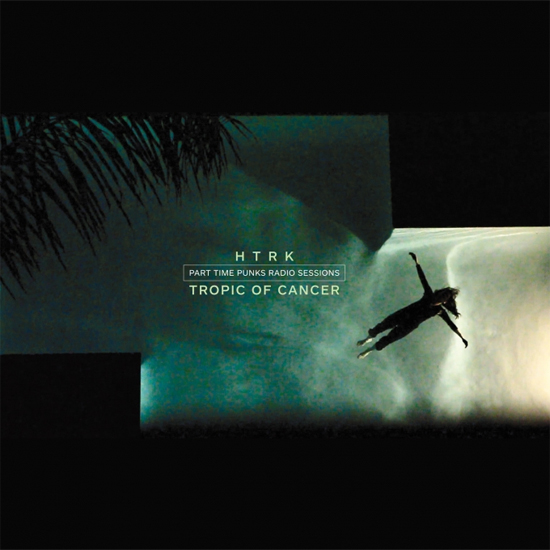A life lived without wit would be unbearable, and all the more so if you’ve had the kind of dreadful luck HTRK have – originally a trio, they sadly lost core member Sean Stewart to suicide in 2010. They’ve never shied away from exploring life’s miseries in all their uncomfortable detail, but they also haven’t been short on the gallows humour to offset that darker perspective.
That’s something that vocalist Jonnine Standish articulates in live addendum to ‘Synthetik’: "I’m a dickhead when I’m drunk, but I still love that high school punch". Captured in a live split with fellow noir industrialists Tropic of Cancer, Part Time Punks Radio Sessions features three tracks from each outfit performed at the iconic underground station in LA. Recorded during HTRK’s US tour for their second studio album Work (work, work) in 2011, the split contains renditions of two tracks from that Ghostly International release, as well as ‘Fascinator’ from their 2009 album debut Marry Me Tonight. The B-side presents songs from Tropic of Cancer’s Blackest Ever Black EP The Sorrow Of Two Blooms, plus one previously unreleased track ‘More Alone’.
To unfamiliar ears, it might be hard to distinguish the smoky androgyny of Standish’s Australian-accented voice from that of Tropic of Cancer vocalist Camella Lobo’s spectre-like echo. But it’s humour – or specifically Tropic of Cancer’s lack thereof – that sets the two apart. You need only look at the band names to anticipate the outcome: HTRK’s sardonic, vowelless corruption of their original ‘Hate Rock Trio’ moniker; Tropic of Cancer’s maudlin reference to Henry Miller’s sexually explicit 1934 novel. Just listen to the indulgent address to emotional emptiness in Lobo’s ‘A Color’ next to the breathy drawl of "my plastic heart attack, make me come in nine flavours, shrink wrap" on HTRK’s ‘Synthetik’. Musically, too, there’s a sophistication to HTRK – rooted in their near-fetishistic obsessions with texture and object love – largely lacking in Lobo’s music.
Tropic of Cancer’s is a morbid romanticism, approached in an embodied and intimate way. What makes HTRK’s work here more interesting is their fixation on desire and gloom in all its complex manifestations, from the prosthetic sex of ‘Synthetik’ to the implied drug abuse of ‘Poison’. It’s in subtlety that HTRK’s strength (and Tropic of Cancer’s weakness) lies. Irony, by definition, is "a means of indicating detachment from a subject, theme, or emotion". Through humour and distance, HTRK are masters of their contempt.


